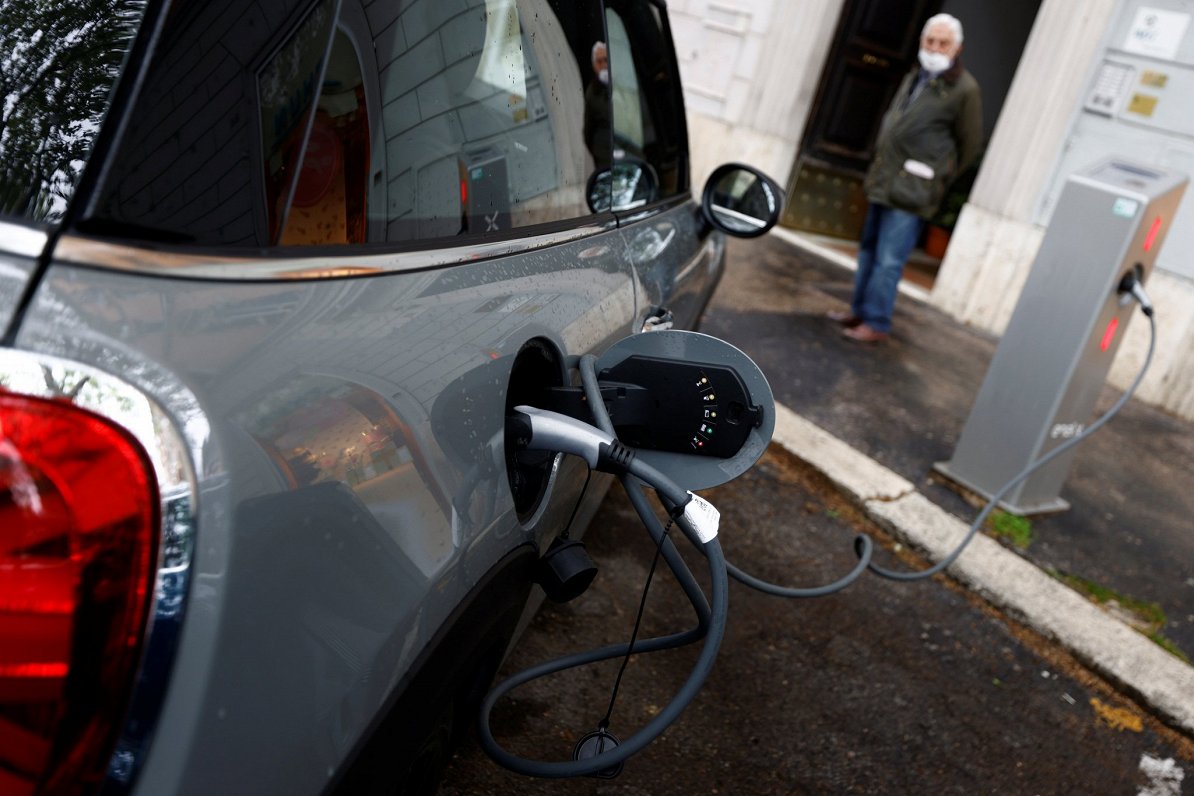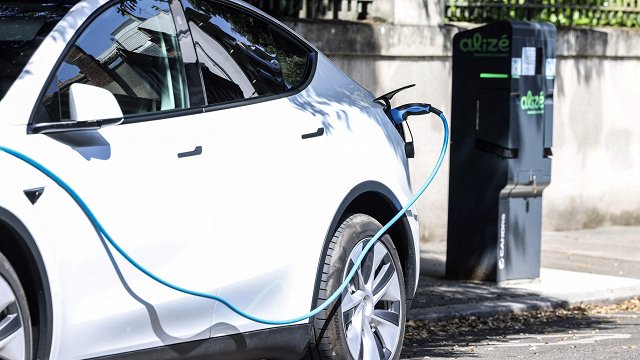The head of the Latvian Auto Association, Andris Kulbergs, said that electric vehicles in Latvia are still considerably less popular than in other European countries.
Last year the largest increase – up to 2.5% – was due to the purchase by two companies, namely Fiqsy purchased 100 shared electric vehicles and the international shipping company DPD bought 15 electric vehicles. The number of electric cars purchased this year is just 1.5% of total sales.
He said: "The hockey championship contributed greatly this year. 80 new Skoda electric vehicles were sold at a special share price. The second thing we are observing is that second-hand electric cars are imported into Latvia every month. Of course, the number is low - 1%, but last month there was a record: 58 or half of all imported cars were BMW, which is very popular among women living in Rīga and the vicinity, who have their own private homes and have a small daily mileage,100 to 150 kilometers."
The purchase of more than 40 environmentally-friendly vehicles is undertaken by the international delivery company DPD. Currently, packages in Rīga, Liepāja and Gulbene are transported with 12 electric cars.
DPD Chief Executive Jānis Grants said that the company is committed to reducing CO2 emissions and that shipments will only be transported by electric cars in Riga in 2025.
“Very comfortable driving, there is no vibration, and in terms of equipment, they are usually better equipped than conventional vehicles. What is not so beautiful - we are currently using Volkswagen Crafter, but the maximum capacity it can travel is 150 km, practically within 100 km. What we'd like to see in the future is more battery power and the ability to make 200, even 400 km.”
He also said: “If we are talking about private transport, there are enough vehicles to choose from, but commercial transport has little choice. A couple of years back, when we started testing the first electric car, prices were twice as high as a car with an internal combustion engine. Prices have now become more affordable.”
Andris Kulbergs, chair of the Auto Association, said prices are still higher than those of similar cars with petrol or diesel engines.
“There is not enough parking or cheaper filler options. People in Latvia do not drive such distances for these cars to pay themselves off during use. We are preparing to introduce an aid program next year for a period of two years, up to €4.5 thousand. It will certainly contribute to the fact that some customers are delaying their purchases for the next year. Of course, the level of aid planned next year has unfortunately been developed only for individuals and municipalities, so companies will not be eligible. Although if we look from car registration, the majority of electric vehicles are purchased by companies that are green and green-thinking, 80-90% of the new cars and 50-60% of the used cars."
The bank Luminor economist, Pēteris Strautiņš, believes that businesses will especially appreciate the benefits of the electric car in the long run.
"What is the transition to an electric car? This means that the initial investment or the cost of purchasing the car itself is higher, but then the expenses are well below. We see this in many cases, including when the switch to new types of light bulbs took place. Traditional bulbs are cheaper, but their use is more expensive. [..] And the logic is simple – the overall efficiency of the internal combustion engine is around 20% or less. The internal combustion engine itself wastes more than half its energy and then there are losses resulting from oil transport and so on. On the other hand, in the case of electricity from renewable sources – sun, wind, the efficiency is around 70%. It is clear that a waste of energy will no longer be able to continue in the future, as has been the case so far. "
The European Green Course aims to make the European Union the first climate-neutral continent by 2050. The phasing-out of petrol and diesel car sales is planned by a number of European countries, with Norway planning to do so by 2025.





























